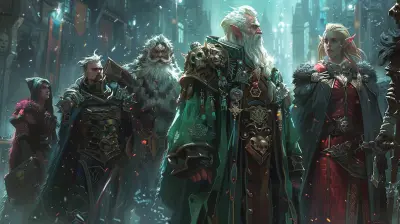Unlocking the Mystery: How Open World Games Handle Lore and Worldbuilding
21 August 2025
Open-world games have this magical way of pulling us in, don’t they? You boot up the game, take your first steps into a vast, boundless world, and suddenly, you're not just playing—you’re living in that world. From the towering mountains of Skyrim to the bustling streets of Night City in Cyberpunk 2077, open-world games have mastered the art of worldbuilding and storytelling. But have you ever stopped and wondered: How do developers cram so much lore and detail into these massive worlds without it all feeling like a jumbled mess? Let’s break it down and see what’s behind the curtain.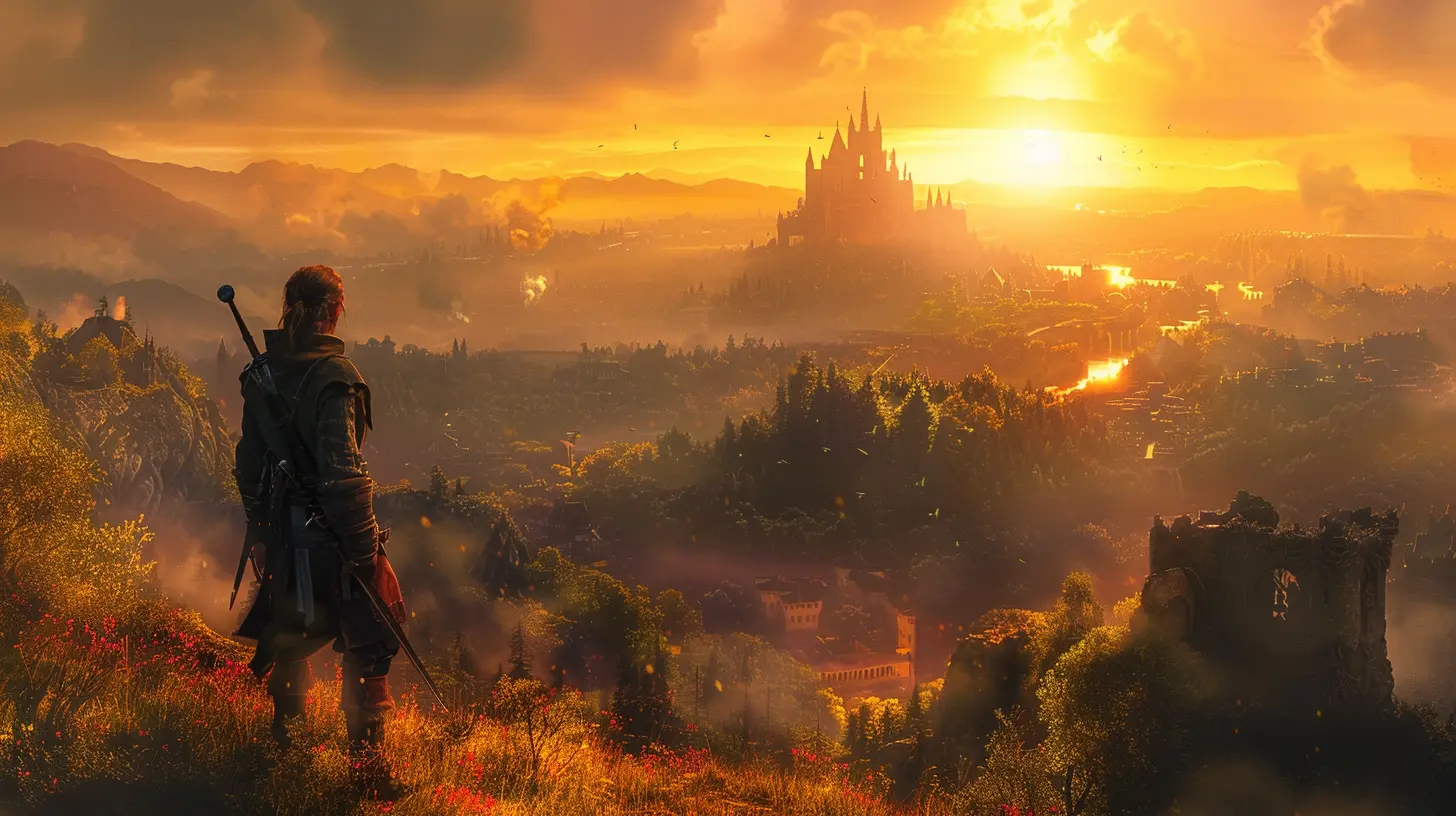
What Makes Open-World Games So Addictive?
Before we dive into lore and worldbuilding, let’s talk about why open-world games even matter in the first place. The allure lies in freedom—your ability to roam where you want, when you want, creating your own stories along the way. It’s like being handed a blank map and a compass, then told, “Go have an adventure.” That sense of autonomy? It’s intoxicating.But this freedom also creates a problem for storytelling. In linear games, the story unfolds as you progress step by step. Open-world games? They're chaotic. Players might decide to chase down a side quest about lost goats instead of saving the world from demonic invaders. So, how do developers ensure the lore remains meaningful without forcing it down our throats? 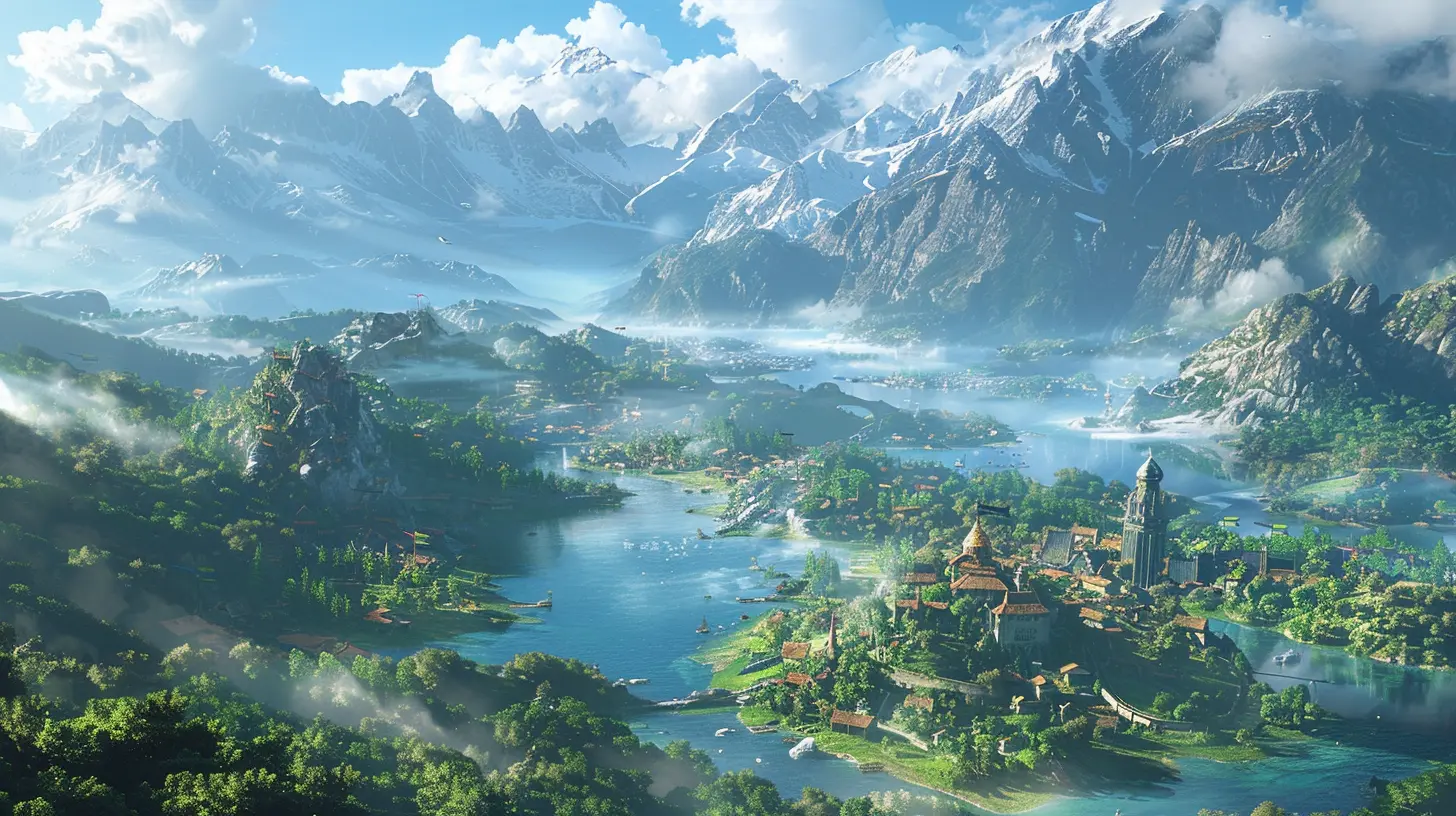
Crafting Lore That Feels Alive
Let’s be honest, nobody likes lore that feels like a history lecture. So, how do open-world games make their backstories intriguing? They weave the lore into the world itself, turning every corner into a potential discovery. Here’s how:1. Environmental Storytelling: A Picture is Worth a Thousand Words
Have you ever stumbled upon a ruined castle or an abandoned cabin in an open-world game and started piecing together its story? That’s environmental storytelling at work. Instead of smacking you in the face with dialogue or cutscenes, developers let the world do the talking.Take The Witcher 3: Wild Hunt, for example. You’ll find little details everywhere—bloodstains on a cabin floor, skeletons clutching ancient swords, or half-burnt letters tucked away in drawers. These small touches let you imagine what happened there without a single line of dialogue.
It’s like being a detective. You’re not just being told what happened—you’re uncovering it. And that sense of discovery? It’s deeply satisfying.
2. Lore Through NPCs: More Than Just Quest-Givers
NPCs (non-playable characters) are often the lifeblood of open-world games. They’re not just there to hand you weapons or send you off to fight monsters. Many of them are vessels for lore.A great example? Elden Ring. Sure, the game is notorious for being cryptic, but talk to the right NPCs, and they’ll drop nuggets of information that unravel its dark, twisted world. But here’s the catch: You actually have to seek them out. This design creates an air of mystery. It's like being handed puzzle pieces—you don’t get the big picture unless you put them together yourself. 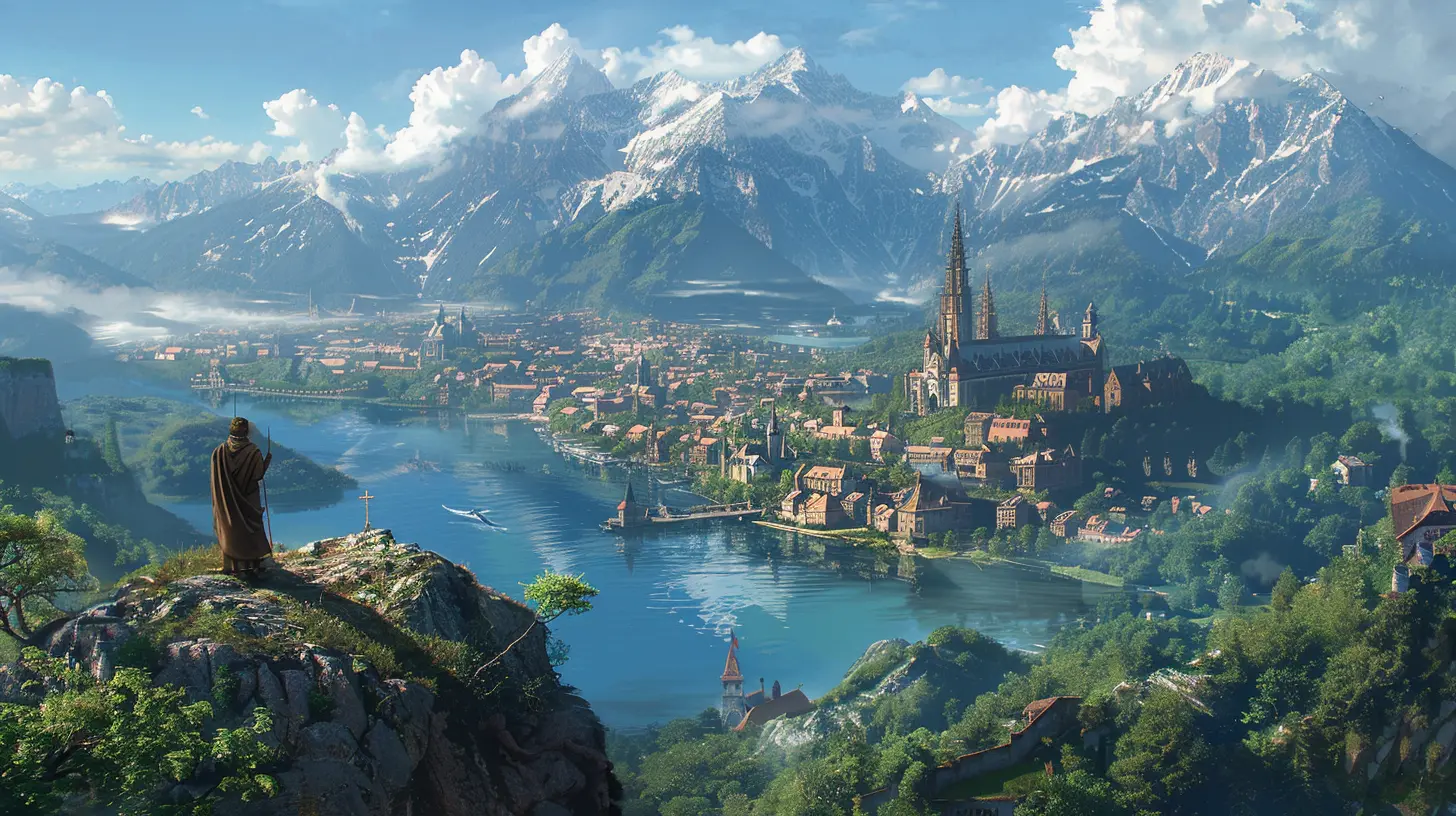
The Role of Quests in Worldbuilding
Let’s talk side quests. Love them or hate them, they’re a staple of open-world games. Side quests might seem like busywork, but when done right, they serve as a goldmine for lore.1. Side Quests That Feel Deep
In a well-designed game, side quests are more than errands—they’re windows into the world. Take Red Dead Redemption 2. When you help a soldier haunted by his past or a widow struggling to survive, you’re not just completing tasks. You’re getting an intimate look at what life is like in the game’s world.These side quests often answer questions you didn’t even know you had about the lore. Why is the world the way it is? What are the rules of this universe? Who are the important players in its history? Side quests help breathe life into the world by embedding you in its culture and struggles.
2. Dynamic Events: The Unscripted Stories
What about the random stuff that happens as you’re wandering around? You might find two bandits ambushing a trader or stumble upon a dragon battling giants. These unscripted moments feel like little stories playing out in real-time.Dynamic events make the world feel alive, as if it’s spinning even when you’re not paying attention. They also offer a subtle way to hint at the lore. Why is that dragon attacking? Why are those factions fighting? If you dig deep enough, you’ll often find answers.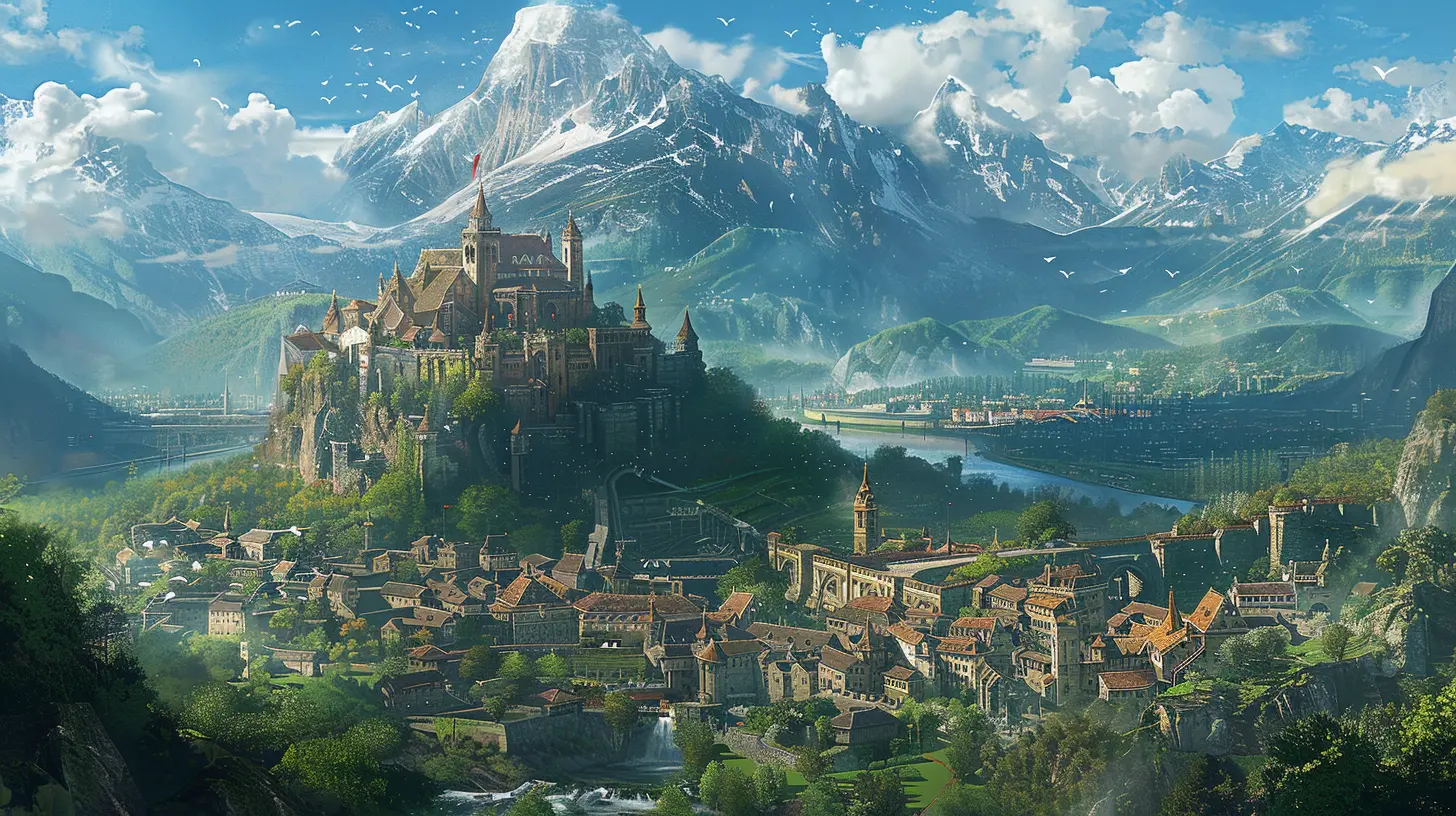
Hidden Nuggets: For the Lore Hunters
You know that “Ohhh!” moment when you uncover something that feels buried in the game? Open-world titles reward curiosity with hidden lore—the kind you only find if you’re paying attention.1. Books, Notes, and Journals
Games like The Elder Scrolls series take this to the next level. Libraries packed with books, notes scattered throughout the world—you could spend hours just reading about the history, religions, and conflicts of Tamriel.But here's the kicker: You don’t have to. The lore is there for anyone who wants it, but it doesn’t bog down the experience for those who don’t care. It’s a delicate balance, and when done well, it’s brilliant.
2. Easter Eggs and Secrets
Who doesn’t love a good Easter egg? Open-world games often tuck away lore in secret areas or hidden dialogue. Maybe you find an ancient sword tied to some forgotten hero or decode a cryptic mural that hints at an untold story. These little breadcrumbs reward players for going off the beaten path.It’s like finding treasure in a sandbox. The thrill of discovery is real, and you feel like you’ve earned that knowledge.
The Challenge of Player Freedom
Here’s the tricky part: Open-world games give players the freedom to do whatever they want. But too much freedom can water down the storytelling. What happens if a player skips half the quests or ignores key locations?1. Breadcrumbing Without Handholding
Developers use “breadcrumbing” to guide players without making them feel forced. This could be as simple as a glowing path, a quest marker, or an NPC casually pointing you in the right direction.Good open-world games make suggestions, not demands. They create intrigue so you want to follow the story threads, but they never yank you by the collar.
2. Adapting the Story to the Player
Some games go the extra mile by tailoring the story to your choices. Mass Effect nailed this with its branching narratives, and while it’s not fully open-world, the principles still apply. Your actions shape the world, giving you a sense of ownership over the lore.The Fine Line Between Depth and Overwhelm
Let’s be real: Some games go too far with their lore. Nobody wants to scroll through 20 minutes of in-game text just to figure out what’s happening. So how do developers find the sweet spot?1. Layered Storytelling
A good open-world game presents its lore in layers. The surface layer is simple—just enough for the casual player to get what’s going on. But underneath that, there are deeper layers for those who want to dig. It’s basically the “onion” approach to storytelling.This way, everyone wins. Hardcore lore enthusiasts can dive as deep as they want, while casual players can enjoy the game without drowning in details.
2. Pacing the Information Dump
Nobody likes being hit with an info-dump. The best games trickle out their lore over time. One well-written note or cryptic conversation at a time keeps things digestible and engaging, like breadcrumbs leading you toward the bigger picture.Why It All Works
At the end of the day, the magic of open-world games lies in their ability to balance lore, worldbuilding, and player freedom. They let you be the hero (or anti-hero) of your own story while crafting a world so detailed and rich that it feels real.It’s a lot like being a tourist in a foreign city. Some people might stick to the main attractions, while others will wander down back alleys, looking for hidden gems. The best open-world games cater to both—giving you enough structure to enjoy the main path, but enough freedom to make the world feel like your playground.
So next time you’re exploring some sprawling digital landscape, take a moment to appreciate the work that went into making that world come alive. Every ruin, every NPC, every random encounter—it’s all part of a delicate balancing act.
all images in this post were generated using AI tools
Category:
Open World GamesAuthor:

Whitman Adams
Discussion
rate this article
2 comments
Celeste Graham
In vast realms where dreams entwine, Lore whispers secrets, stories divine. Open worlds breathe life, unbound and free, Crafting tales where every player can be.
December 18, 2025 at 5:39 AM

Whitman Adams
Thank you! You've beautifully captured the essence of open world games—their ability to intertwine lore and player agency creates immersive experiences that resonate deeply.
Ariana Maddox
What a fascinating exploration of how open world games weave intricate lore into their vast landscapes! Your insights into worldbuilding truly highlight the artistry behind these immersive experiences. It’s amazing how these narratives enhance our journeys, making every discovery feel meaningful. Keep sharing these captivating analyses!
August 24, 2025 at 4:14 PM

Whitman Adams
Thank you for your kind words! I'm glad you enjoyed the article and found the exploration of lore and worldbuilding in open world games fascinating. I appreciate your support!

